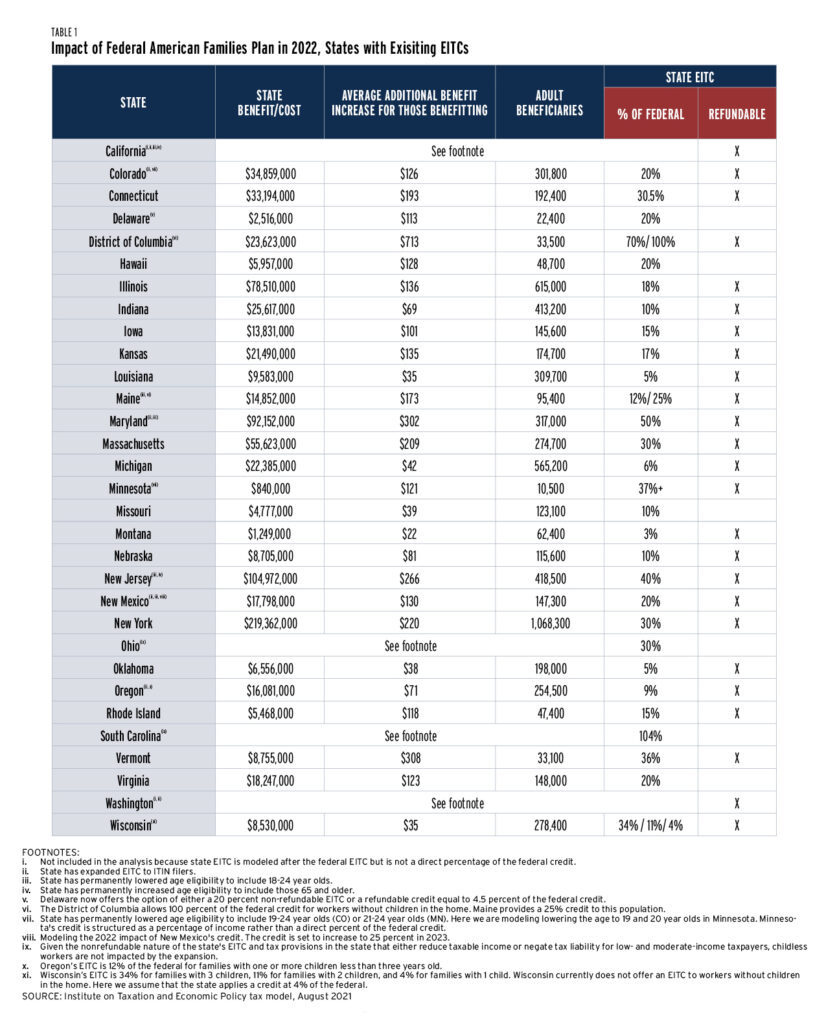In a new brief, ITEP provides estimates of how a permanent expansion of federal Earned Income Tax Credit (EITC) enhancements under the American Rescue Plan Act (ARPA) could strengthen state-level EITC benefits and further boost economic security for lower-wage earners across the country. The EITC expansion targets workers without children in the home. In 2022 it would provide a $12.4 billion boost, benefiting 19.5 million workers who on average would receive an income boost of $730 dollars.
Both Biden’s American Families Plan and the House budget reconciliation package would extend EITC enhancements, substantially increasing the credit for low-wage workers without children in the home while making it available to more adults through expansions of age and income limits.
Thirty states, plus the District of Columbia, offer state-level EITCs. State rules on federal conformity, or how states link to changes in federal law, play a major role in how and whether states adopt federal EITC enhancements. For example, both Washington, D.C. (with the exception of the federal phaseout) and Puerto Rico have recently taken steps to conform to the current federal EITC enhancements, bolstering the impact of their credits in the process.
When it comes to benefits for workers without children in the home, states are already ahead of the curve – especially in terms of expanding age-eligibility. Seven states—California, Maine, Maryland, New Mexico, New Jersey, Colorado, and Minnesota—have permanently extended their state-level credits to workers without children in the home under age 24 while California and New Jersey have expanded the credit for those 65 and older. The federal EITC enhancements, currently under consideration for temporary or permanent expansion, would go even further in boosting this important poverty-fighting credit for low-wage workers. The credit has improved the financial livelihoods of millions. States should couple to changes in the federal EITC that strengthen and enhance this credit.





